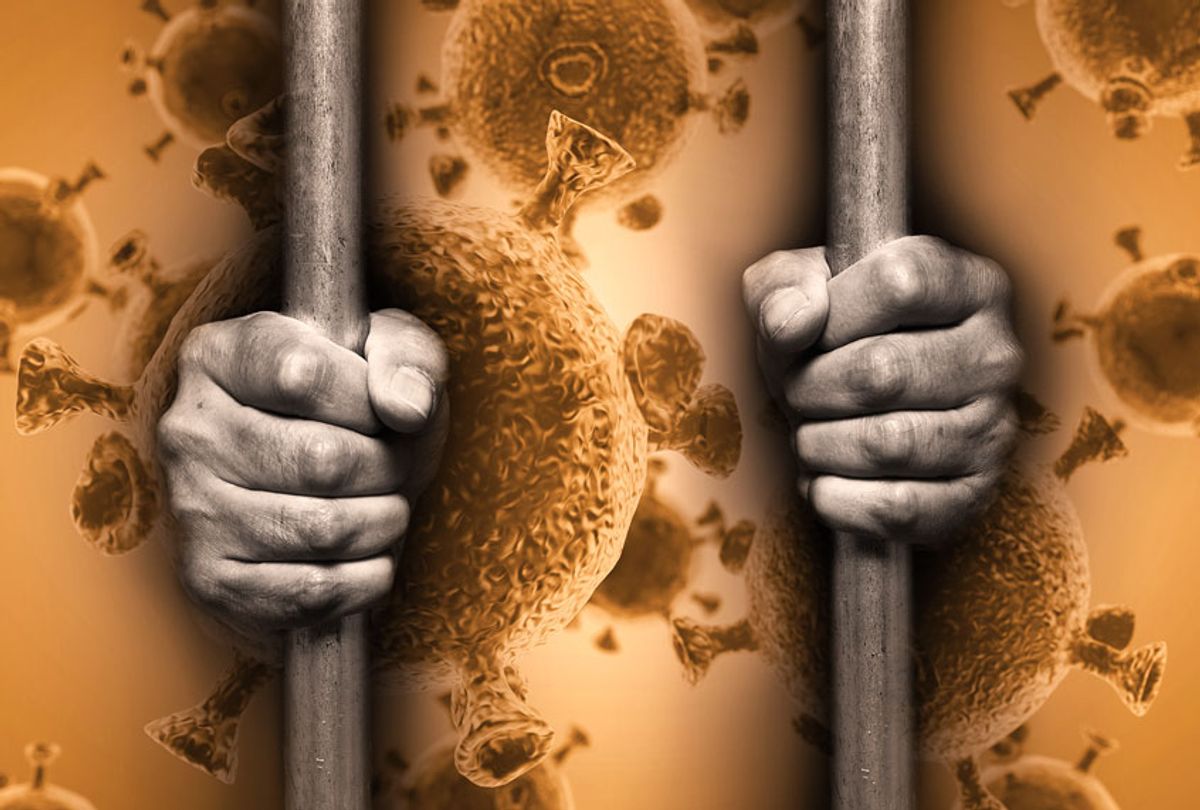Thirty years ago, my son Gerald Reed survived torture at the hands of the Chicago police. He was another victim of police detectives working for the infamous Cmdr. Jon Burge. In February, more than a year after a judge threw out my son's conviction, a second judge reversed course and dictated that Gerald would serve out a life sentence.
Our flawed police and judicial system have physically harmed my son and taken him from my home. Now the COVID-19 crisis has me in fear for his life.
A few days ago, I learned that a man died in Stateville Correctional Center, the prison where my son is locked down. Those who lived near the man said he was snoring and breathing loudly at night and running a fever. His passing was sudden.
There have now been at least two confirmed fatalities due to COVID-19 at Stateville. Those incarcerated at the prison are scared.
Like all mothers of incarcerated children, I am terrified about the reality of the new coronavirus blasting through Stateville as it is currently doing at Rikers Island. The New York City mayor is moving faster than our own officials to get incarcerated people out of harm's way. Yet it's not enough there, and is certainly insufficient here.
Recently, I read a terrifying letter from a son to his mother. Like my son, he's locked down at Stateville and at risk of contracting the virus.
His mother and I are both parents of children who have survived torture at the hands of the Chicago police. They have already survived a number of traumas inflicted by the state. Now they are forced to survive another trauma in a petri dish.
Our children are the state's responsibility. But we are not naïve. We know that they are not their priority.
When detectives tortured my son, they re-broke his right femur. He survived on painkillers for 26 years before getting the surgery he required. His diabetes is barely treated and is the sort of underlying condition that makes him more vulnerable to the deadly coronavirus.
My friend Rosemary Cade's son Antonio Porter developed blood clots in his lungs when he went to prison. He didn't get the treatment he needed until he advocated for himself. Now, he is on a blood thinner and has to be extra careful with his health.
As the state has inadequately cared for prisoners previously, I can't see them rising to the job now in the midst of a national crisis.
Guards are rightly receiving hand sanitizer; our children are not. Leaving them in unhygienic conditions during a pandemic is fundamentally inhumane.
What hurts the most is that our children didn't bring the virus onto themselves. It's being brought to them. I have befriended many prisoners because not everyone has family to speak for them. The message I'm hearing from those inside is the same: We need help because the prisons aren't sanitized and aren't clean.
It's clear that a thorough rethinking of our prison system — and much else about our country and its numerous racial and economic disparities — will need to take place if we want to successfully put this catastrophic pandemic behind us. But for now, the urgent priority must be removing as many prisoners as possible, especially elderly people and those with underlying conditions or compromised immune systems.
As a mother who has promised my son that I will fight for him forever, I also believe that Illinois Gov. J.B. Pritzker should pardon all those who have endured torture leading to prison and release them to the loving embrace of their families and communities.
Those who remain should be provided with more than just a bar of soap. They are our responsibility.
Copyright © Truthout. Reprinted with permission.



Shares